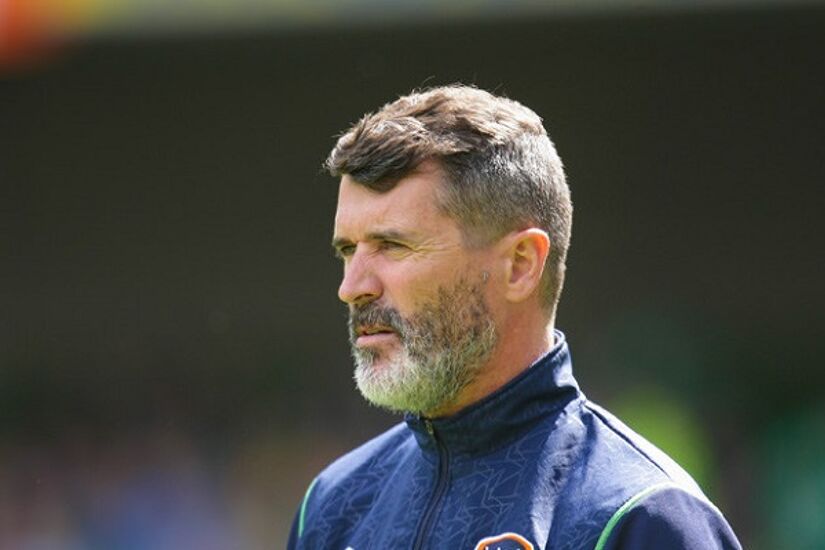Top 5 Irish appearance holders in European competition

Credit: Extratime Team (ETPhotos)
With the qualifying round draws for the 2015/16 Champions League and Europa League set to take place in UEFA headquarters in Nyon on Monday, there is a keen Irish interest in the outcome – and not just from League of Ireland supporters.
While fans of Dundalk, Cork City, St. Patrick's Athletic, Shamrock Rovers and UCD are eager to see who their clubs will face in Europe this season, a number of former LOI players will be looking on too, such as: Barry Molloy and Stephen O'Flynn (both currently with Champions League-bound Crusaders); Declan 'Fabio' O'Brien, Ciarán Martyn and David Elebert (all with Glenavon); Niall McGinn (Aberdeen); and Graham Cummins and Alan Mannus (both with St. Johnstone).
Aberdeen also boast a trio of Dubliners in Adam Rooney, Willo Flood and Jonny Hayes, while Richie Foran and Aaron Doran are part of the Inverness Caledonian Thistle side making its UEFA competition debut in the second qualifying round of the Europa League.
Apart from Rovers' Keith Fahey and City's Alan Bennett, Colin Healy and Liam Miller, there will be other Republic of Ireland internationals involved at this early stage as well. Celtic striker Anthony Stokes is in the Champions League first qualifying round pot, while Joey O'Brien, Darren Randolph (both West Ham United) and Cillian Sheridan (AC Omonia, Cyprus) are all in the Europa League equivalent with their clubs.
With so much Irish involvement in this year's two opening draws, Extratime.ie looks at the top five Irish international appearance holders in UEFA club competition.
1. Roy Keane, 84 appearances (Manchester United)
Despite having more appearances than any other Irishman on this list, perhaps the highest point and lowest ebb of Keane's history in European competition came within 35 days of each other in 1999.
On April 21st, Manchester United travelled to Turin to take on a formidable Juventus side – boasting Zinedine Zidane, Edgar Davids, Didier Deschamps and Filippo Inzaghi – in the second leg of their Champions League semi-final. Two weeks earlier, it required a stoppage-time equalizer from Ryan Giggs to ensure Juve left Old Trafford with just a 1-1 draw after Antonio Conte had given the Italians a first-half lead.
When Juve took a two-goal lead through Inzaghi inside 11 minutes at the Stadio delle Alpi, the Red Devils hopes of reaching a first European Cup final since 1968 seemed dead and buried – until Roy Keane stepped up, scoring his side's first goal of the night, a glancing header at the near-post from a David Beckham corner.
The skipper turned in a performance hailed by many as one of his finest for the club. A Dwight Yorke brace completed the turnaround and United were on their way to the Nou Camp to take on Bayern Munich in the final at the end of May.
Except that Keane had been booked in the 34th minute for a professional foul on Zidane, meaning he would miss the final through suspension. A 77th minute yellow card for Paul Scholes meant he too would miss what could perhaps be considered United's greatest triumph under Sir Alex Ferguson.
Late, late goals from Teddy Sheringham and Ole Gunnar Solskjaer completed another incredible fightback against Bayern to ensure United won only their second ever European Cup. Keane later described missing that final as “just about the worst experience I'd had in football.”
2. Emma Byrne, 77 appearances (Arsenal Ladies)
Since the inaugural season of the UEFA Women's Champions League in 2001/02 (called the UEFA Women's Cup until its rebranding ahead of the 2009/10 campaign), Arsenal have played 79 times in the competition. This puts Emma Byrne's already impressive appearance figure into an even more astonishing context.
Since making her debut in the competition in a 4-0 home victory over Bern in October 2001, the 36 year old has only missed two European games for Arsenal. Of the 14 installments of the Women's Champions League to date, Byrne has featured in 12 – only missing out in 2003/04 and last season, 2014/15.
Arsenal are the most successful women's team in England at present, winning 12 FA Women's Premier League titles and two Women's Super League titles, as well as 13 FA Women's Cups and other domestic triumphs. For Byrne and the Gunners, though, the pinnacle would be lifting the UEFA Women's Cup in 2007.
The Londoners had reached their first ever final and were outsiders ahead of the two-legged tie against two-time winners Umeå IK of Sweden. Alex Scott would take the plaudits as her long-range stoppage-time strike in Gammliavallen would prove to be the difference, giving the Gunners a 1-0 aggregate win.
However, Byrne's heroics in both games – where she made crucial stops from the Brazillian Marta in the first leg and Ramona Bachmann in the second – helped get Arsenal over the line. The goalless stalemate at Meadow Park, Borehamwood saw Vic Akers' side crowned champions of Europe, making them the first team from outside Germany or Scandanavia to win the competition. They remain the only English side to win the Women's Champions League.
3. Denis Irwin, 77 appearances (Manchester United)
Denis Irwin was the second Corkman in that Manchester United treble-winning squad of 1999, but unlike Keane, the full-back played against Bayern Munich in the final at the Nou Camp. Irwin featured in 12 of the Red Devils' 13 European games that season, playing every minute of the knock-out phase.
Irwin won many honours in his 12 seasons at United and his manager, Alex Ferguson, would go on to name him as “the one certainty” to get into his greatest ever United XI. Like many of his teammates, the treble of '99 – and, in particular, the Champions League victory – was perhaps the apex of Irwin's fine career. However, it wasn't his first or only success on the European stage.
In '99, Irwin was the only surviving member of the United team that had won the European Cup Winners' Cup eight years earlier. A 17 year old Ryan Giggs only made his first-team debut in the weeks leading up to that final and the Welshman didn't make his own European bow until the following season's competition.
United's 2-1 victory over Barcelona in Rotterdam meant Irwin was a part of history as the Manchester side became the first English club to win a European trophy following the reintroduction of English sides to UEFA competition in 1990/91 – this after a five-year ban imposed following the Heysel disaster in 1985 was completed.
Little did Irwin know that this was a mere stepping stone to an even greater achievement: being the focal point of Eric Cantona's favourite moment as a footballer in the film, Looking for Eric.
4. John O'Shea, 77 appearances (Manchester United)
Unfortunately for the third Manchester United player on this list, the Champions League win in '99 came too soon for him. Though John O'Shea joined the club from Waterford Bohemians in August 1998 at 17, he didn't become involved in first-team affairs until the following season and wouldn't make his own European debut until Halloween 2001 – in a 1-1 away draw with Lille as a 69th minute substitute.
O'Shea's versatility would see him remain at Old Trafford for 12 seasons and in that time he would be a part of a United squad which reached back-to-back Champions League finals in 2008 and 2009. However, his recollections of those two nights will always be bittersweet.
The Red Devils won the 2008 edition in the Luzhniki Stadium, Moscow, with a penalty shoot-out victory over Chelsea, but lost the 2009 final in the Stadio Olimpico, Rome, to Pep Guardiola's all-conquering Barcelona – O'Shea only played in one of those finals and it was in the defeat to the Catalans, where he acquitted himself well at right-back against Thierry Henry although in the end it was to no avail.
The Waterford native had been a prominent figure in United's Champions League defence in 2009, racking up 1,080 minutes on the way to the final – more than double the 398 minutes he managed the previous campaign. Speaking before the 2009 match, O'Shea told BBC Sport:
“It would be the pinnacle of my career to play in the final, but to win it is the be all and end all... If I do play it will be a special occasion, but at the end of the night you want to make sure you're on the end of the correct result.”
One highlight O'Shea can take from that 2009 campaign, though, is scoring the only goal of the game against Arsenal in the semi-final first-leg at Old Trafford – United would go on to secure a 4-1 aggregate victory over the Gunners.
5. Shay Given, 71 appearances (Newcastle United, Manchester City)
Of Shay Given's 71 European games, 62 were played with Newcastle, making him the Tyneside club's record appearance holder in Europe. Himself and Aaron Hughes are also the only players to feature in all three of the Geordies' Champions League campaigns – in 1997/98, 2002/03 and 2003/04.
Given's appearance tally received a significant boost in the 02/03 season. Newcastle qualified for the Champions League at a time when there were two group stages – the Donegal native played in 12 of Newcastle's 14 European games, which included a two-legged qualification tie.
Newcastle were eliminated in the second group stage. To put that into context, Barcelona won the 2014/15 edition in 13 games – the Geordies didn't even reach the quarter-finals after 12 games proper in 02/03. The 03/04 campaign never got off the ground as Newcastle were eliminated by Partizan Belgrade in the third qualifying round on penalties (Hughes missed the crucial spot-kick).
However, this was the start of a run to the semi-finals of the UEFA Cup which would be the closest Given would ever come to major success on the European stage (though he did manage Intertoto Cup glory in 2006 when Newcastle won one tie and then out-lasted 10 other 'co-winners' in the 2006/07 UEFA Cup to claim the plaque).
Given featured in 11 of Newcastle's 12 games as they saw off NAC Breda, FC Basel, Vålerenga and PSV Eindhoven before falling to Marseille in the last-four – a certain Didier Drogba beat Given twice in the second leg in France to end Newcastle's involvement in the tournament.

